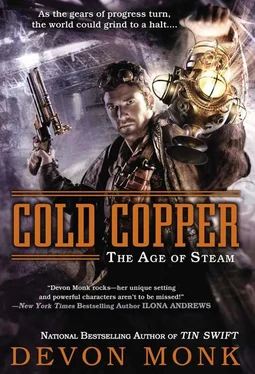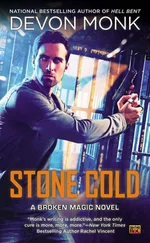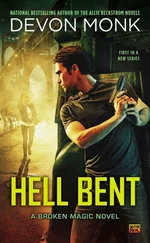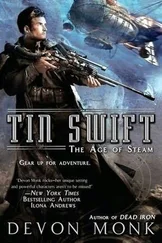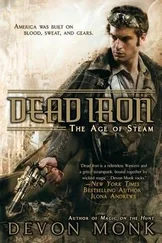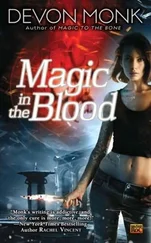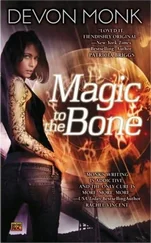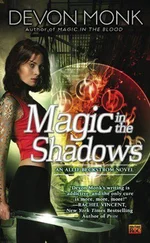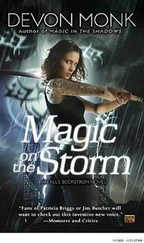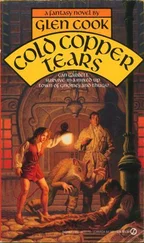“Well?” Rose asked.
“I…don’t know. Lighting? Lanterns? Care you to apply your curious mind to it?”
She stepped up to the edge of the crate and glanced inside.
A chorus of not-quite voices and not-quite strings and not-quite woodwinds burst through her mind. It was as if the device—whatever it was—was eager to speak, to reveal its secrets, to tell how it was made and why it was made and what it could become.
Growing things used to fill her mind like this, used to speak to her like this: the device, the thing made of metal, sang.
Copper—so much copper—gave off the hardiest sound, twisted as it was in coils around a central glass orb the size of a large apple. Four solid plates of cold-pounded copper spread out from the center orb and coils. Holes allowed the copper coils to thread through those plates into long, thin, almost delicate strands that looked like spider legs.
The possibilities of what it could be, what it was intended for, rushed over her like a hard wind, and she gasped trying to catch her breath and wits. Her mind swam with the wonder and the complex concepts of this odd creation.
She knew this was not a creature, not a lantern. It was more. It was built to hold something. Carry something.
And it was built to power something. But the possibilities of what, specifically, it could power flashed hot behind her eyes, then, just as quickly, burned to ashes.
“It’s…amazing,” she exhaled.
“Don’t move!” a voice called out.
Rose blinked hard, trying to pull her racing thoughts away from the device and back to the dark train car.
“Put your hands up and step away from that crate.”
Who was speaking? Thomas? No, not Thomas.
Three rough-looking men were headed their way, guns drawn.
“You.” One of the men jerked his gun toward her. “Put that back in the crate.”
“Put what?” She looked down at her hands. She was holding the device in one hand, the metal casing and glass globe cradled in her palm, spidery wire legs draped through her fingers like threads.
When had she picked that up? Why hadn’t Thomas stopped her from accidentally stealing?
She glanced up at Thomas, who stood just a bit in front of her, one hand up, the other still clutching the pry bar.
“I’m sorry,” Thomas said. “I don’t believe we’ve met. Who are you gentlemen?”
“You don’t need our names,” the lead man said. “You only need to know we have an interest in keeping thieves out of our goods.”
“Your goods? These crates have no shipping labels. Unless you give me your name, I can only assume you came back here to burgle the place.” Thomas tipped his head just a bit.
“We aren’t the robbers here.”
“Nor are you the law,” Thomas said with a bit more steel in his tone. “As long as it is on this train, all goods are under the protection of the United States Postal Service and the Kansas Pacific Railway.”
“This gun says otherwise.”
“Yes, well. I see that it does,” he said. “Before we begin shooting each other, let’s let the lady go, shall we? This wasn’t her lark.”
“It is now.” The three men closed the distance and Rose saw Thomas tense.
“Rose,” he said, tightening his grip on the pry bar. “Run.”
The devil certainly knew how to lay a fine table. Cedar hadn’t eaten his fill for weeks now, getting by on hardtack, grits, and whatever game they could bring down while on the road.
But here, at Mayor Vosbrough’s manor, breakfast was served hot and heaping on fine white china with gold trim around the edges. Thick planks of seared beef, chunks of fried potatoes, eggs over easy, and thick, fluffy biscuits were enough to make his mouth water before he even picked up his fork. Accompanying the meal were tall glasses of heavy cream milk and coffee so dark and rich, it went down like aged Scotch.
Besides Mayor Vosbrough and Cedar’s traveling companions, two other people sat at the table. Mr. Charles Evans Lowry was a ruddy-faced man with black hair oiled back smooth, his mustache trimmed to meet his sideburns. He dressed finer than the mayor and had been introduced as a prominent real estate developer.
Their other breakfast companion was Miss Lydia Daffin, a round-faced young woman with clever eyes and a quick tongue who wore her hair curled at the temples and drawn up off of her neck. She was, Cedar was given to understand, the heiress of Daffin Coal Company.
“Please excuse the plain spread,” Mayor Vosbrough said as he waved a knife of fresh butter over the top of a split biscuit. “If I’d known you were coming to our little town, Mr. Madder,” he said to Alun, who had refused to sit at the mayor’s right and instead had dropped down in the seat at the foot of the table, “I would have planned a proper meal. Maybe set up a whole parade to welcome you all in.” He buttered the biscuit and took a huge bite.
Miss Daffin laughed lightly. “A parade? Are you and your brothers such a sight to see?” she asked. “Perhaps you have valiant histories, honors in battle to share with the people of Des Moines?”
Alun shook out his napkin, but instead of using it, he brushed his fingertips over the front of his shirt. “I’m afraid we’re plain men, Miss Daffin. Mayor Vosbrough here has a queer sense of humor.”
She considered Alun, then Vosbrough, and finally glanced at Cedar.
He gave her an even stare. A small knot of confusion knit her brow.
“Well, certainly it is delightful to have new people here in town. Important people.” She left that hanging in the silence, fishing for more information.
“Not sure that I’ve heard of you gentlemen,” Mr. Lowry said, picking up the conversation. “But, Miss Dupuis, I believe I was in Virginia when you gave that speech before the statesmen there. Made a convincing case for further educational reform, if I recall correctly.”
“Thank you, Mr. Lowry,” she said. “It was a stirring debate.”
“Stirring? Why, you had every man in that building eating out of your hand.” He took a drink of coffee, lifting his cup just a bit in toast before he did so. “Wouldn’t mind seeing that sort of pepper out of my people in Washington.”
“You are too kind,” Miss Dupuis murmured. “I understand you’ve been very influential in rail construction lately.”
“Well,” he took a bite of steak and chewed, then wiped his mouth on the linen napkin. “Let’s just say it has been my greatest pleasure to work with Mayor Vosbrough. There isn’t a sharper mind in this great country.”
Vosbrough chuckled. “Flattery always so agrees with my digestion, Mr. Lowry. Please do go on.”
Alun and his brothers ate their way methodically through the meal. On the surface they didn’t seem particularly worried, but Cedar had traveled with them long enough to know their body language.
The brothers were tense. Waiting for an ambush. Waiting for a chance to fight.
He’d never seen them quite like this before, and he’d seen them face down terrible devices, creatures, and men.
The mayor, apparently, was worse than any of those things.
Maybe Cedar’s instincts hadn’t been that far off.
“I’d rather be flattering that sister of yours,” Mr. Lowry said. “I don’t suppose she’ll do us the honor of a visit again soon?”
“Yes,” Alun said. “How is your sister, Killian?”
The mayor’s eyes narrowed for a moment. Then he sat forward and took a drink of coffee. “Fully recovered, thank you. And so is my brother.”
“I didn’t realize they were ill,” Miss Daffin said.
“They weren’t,” the mayor said. “Some time ago they suffered a bit of a…setback in their business dealings. Water under the bridge. The family business and fortune, as you well know, is thriving and growing. Just like this town.”
Читать дальше
